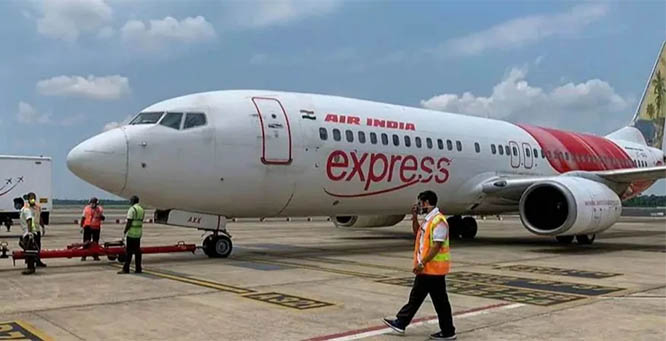
After dipping into his savings to weather India’s snap pandemic lockdown last March, Manoj Kumar was just getting his head above water again earning 600 rupees ($8) a day as a construction worker in the tourist hotspot of Goa. He’d squirreled away enough for a trip last month to his native village in Bihar some 1,490 miles away for a wedding. He’s still there, stuck in one of the nation’s least developed states, as a fierce second Covid-19 wave triggers the world’s worst health crisis and prevents his return.
On a lucky day, he’ll land some odd jobs that fetch him as much as 300 rupees. But there aren’t too many of those chores left. So he’s taking loans to feed and clothe his wife and three kids.
“It is all in God’s hands now,” said Kumar, who’s told his wife to curtail spending on items such as lentils, cooking oil and clothes. “I don’t know when I will return. My family is worried and doesn’t want me to go back as the cases are also rising in Goa.”
Kumar, 40, is one of the millions of migrant workers who form part of India’s vast unreported informal sector, which accounts for half of its $2.9 trillion, domestic demand-driven economy.
A protracted Covid-19 wave is shrinking incomes and wiping out savings of people like Kumar, posing the risk of a double whammy for Asia’s third-largest economy that’s still struggling to recover from last year’s pandemic-induced recession.
The government estimates India’s gross domestic product shrank 8% in the year ended March, its biggest contraction since 1952.
Many economists are cutting their forecasts for the current fiscal year as rising unemployment and dwindling savings dim the chances of a double-digit growth. Shaun Roache, chief economist for Asia Pacific at S&P Global Ratings, slashed his prediction to 9.8% from 11% earlier.
Fitch Solutions sees the economy expanding by 9.5%, a projection that’s below the Bloomberg consensus of around 11%. “A drawn-out Covid-19 outbreak will impede India’s economic recovery,” Singapore-based Roache said.
“The country already faces a permanent loss of output versus its pre-pandemic path, suggesting a long-term production deficit equivalent to about 10% of GDP.”
With the latest surge caused by a new coronavirus strain, total infections in India have risen to 21.5 million, a third of which were added just in the past three weeks alone.
Experts have warned the crisis has the potential to worsen in the coming weeks, with one model predicting as many as 1,018,879 deaths by the end of July, quadrupling from the current official count of 234,083.
Harsh and Sudden
As new travel restrictions are put in place in some of the nation’s biggest economic centers to contain the outbreak, India’s poor are likely to bear the brunt again, just as they did in 2020.
They have yet to recover from the lockdown ordered by Prime Minister Narendra Modi in late March last year. The harsh and sudden measure sparked an exodus of migrant workers from cities such as Mumbai and New Delhi, as they trekked hundreds of miles to reach home.
People like Kumar typically work without contracts and often for a pittance. The so-called informal economy in India employs approximately 411 million workers, according to calculations by Jeemol Unni, a professor of economics at Ahmedabad University, who relied on surveys by the government’s National Statistical Office to arrive at the number.
While the low-paying farm sector employs the bulk of them, construction comes second with about 56 million.
Unprotected by unions and politicians, these laborers often miss out on handouts from governments. After meeting daily expenses, they are left with little to pay for health care and medicines -- a risky situation especially when a pathogen is taking lives and sending thousands to intensive care at overcrowded hospitals running short of beds.
Dip in Savings
Economists warn depleting household savings and falling incomes will have an impact on domestic consumption, which accounts for almost 60% of GDP. A study by Nikhil Gupta, an economist at Mumbai-based brokerage Motilal Oswal Financial Services Ltd., found that India’s household savings dropped to 22.1% of GDP in the quarter through December, from 28.1% in the three months ended June last year. Full-year numbers show India’s savings growth lagged behind the likes of the US, the UK and Japan, he said.
“A slower rise in household savings, coupled with similar or slower decline in consumption, confirms weak income growth in India,” Gupta said. “If so, the contribution of pent-up demand in growth recovery would also be limited in India compared with other nations.”
Data showed April jobless rate increased to nearly 8% from 6.5% in March, with more than seven million exiting the workforce last month, according to data from Center for Monitoring Indian Economy Pvt., a private research firm.
As a result of all the turmoil that started last year, income inequality is deepening in India. A study by Pew Research Center has shown an estimated 75 million people slipped into poverty since the pandemic began. The second wave is set to crush some more. For the study, Pew considered daily incomes of 150 rupees or less as poor, 151 to 750 rupees as low income and 3,750 rupees and above as high income.
A study by the Azim Premji University in Bangalore showed even more alarming numbers. About 230 million individuals slid below the national daily minimum wage threshold of 375 rupees during the pandemic, it said.
Though India could still emerge as one of the fastest growing economies in the world, it will also be one of the most unequal countries, Oxfam, a non-profit organization said.
Duvvuri Subbarao, a former governor of India’s central bank, said the strife faced by the informal-economy workers could hurt India’s long-term growth prospects. “Inequalities have intensified because the formal sector has nearly normalized while the informal sector remains distressed,” he said.
Slower growth would be bad news for workers like A.K. Singh, who was a cook for a monthly salary of about 20,000 rupees in a restaurant in Mumbai. He fled recently to his home town of Gorakhpur in northern India to start a tire business, for which he’s waiting for a loan.
“I used some of my savings and money I received from my last salary,” he said. “But there’s a lockdown here too for the past week. My shop was hardly open for two days during the week. What will we earn out of that?







Comments
Keep this actor away from administration.
At least please remember not to allow him or any one like him to sit on the responsible seat.
There is another dangerous guy is so called Yogi.
Identify those guys to blacklist from cheating you again
Add new comment